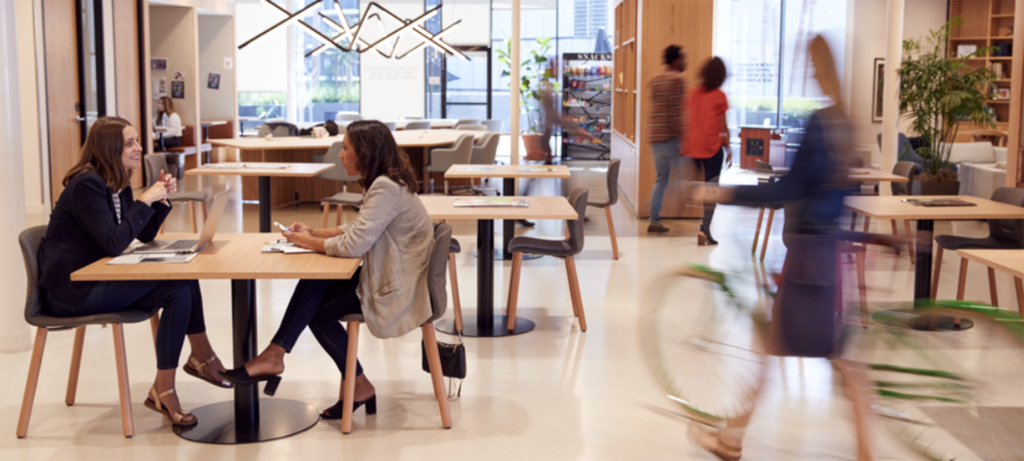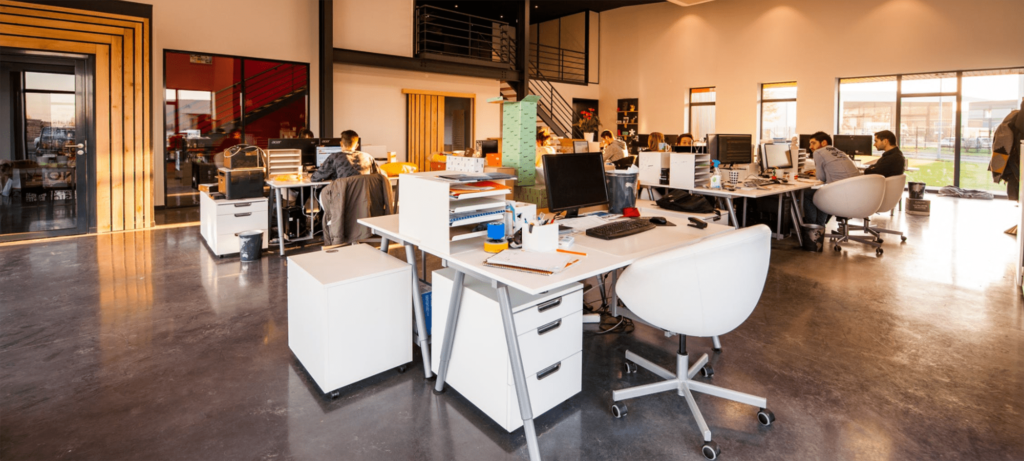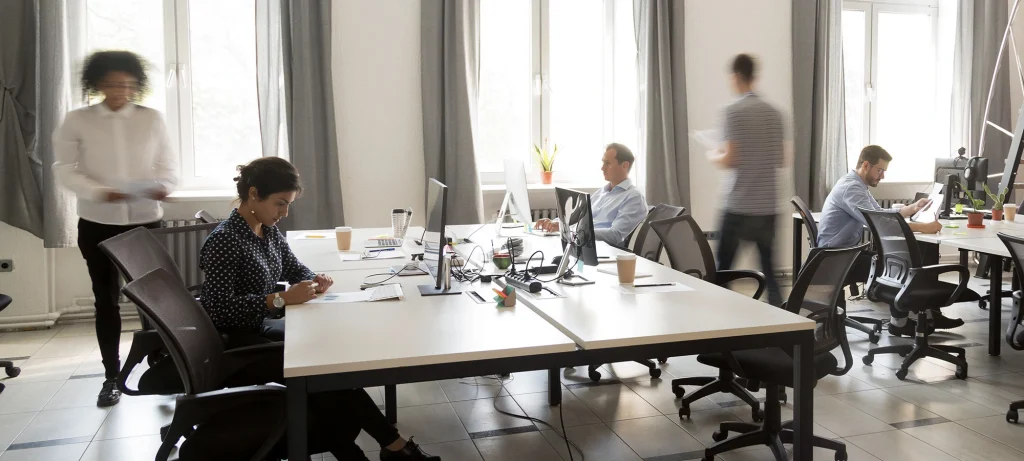This follow-up report to The Hybrid Workplace: An Employee Census in 2021 offers insight into how employees in the United States and the United Kingdom experienced work and life in 2022.
Read Cloudbooking’s whitepaper, produced in partnership with YouGov, that examines the future of the workplace, employee sentiments and hybrid workplace trends by downloading the report below.
Explore the highlights of our reports
This year’s survey results underscore the fact that employees are now choosing to live their lives differently and more on their terms. Employers must accept that the future of work is about choice — employees choosing where they do their best work, choosing to work when they feel most productive and choosing to be in the office when it suits them most.
For media inquiries, get in touch with the Cloudbooking team.
1. One in two employees is a hybrid worker
Over half (56%) of people in the UK and US work on a hybrid basis (i.e. some combination of remote work and in-office work). But employers are still deciding whether to make hybrid working permanent. What’s clear, however, is that the majority of workers are demanding the best of both worlds.
2. More British than American workers want hybrid working to be the future of work
Differences in work cultures are driving a divide between US and UK workers’ perspectives on permanent hybrid working. We found that 17% of UK employees describe themselves as “occasionally office-based, and we have the option to work from home” — over double the rate of US workers (8%).
3. The majority of workers are less likely to join organisations with no hybrid work policy
Two-thirds (67%) of workers say they would be less likely to work for a company that doesn’t offer hybrid working, suggesting that hiring managers and recruiters must consider flexible work options as critical components of talent acquisition.
4. Workers are split on remote working’s impact on company culture
We found no clear consensus on whether remote working stifled the process of building company culture. But 57% of workers over the age of 55 expressed concerns over maintaining company culture with a remote workforce. Employers must ensure that employees from all demographic groups don’t feel left behind in their new working environments.
5. Most employees felt productive when working from home. But there’s a catch.
Roughly two-thirds (65%) of workers felt that home pressures, such as housework and childcare, did not negatively impact their ability to be productive when working from home.
However, fewer women (23%) than men (36%) had problems working from home. This finding aligns with other studies showing that women appreciate remote work because of the flexibility it gives them for childcare and housework.
6. Employers need to work harder to build a workplace community and prevent worker isolation
Nearly half (43%) of all respondents said they felt less connected to their organisations when working remotely. Employers face the challenge of building and sustaining a sense of community among hybrid and remote workers, ensuring no one feels isolated and faces a greater risk of developing poor mental health.
7. Workers are less concerned about using desk booking and room booking for social distancing
As concerns over social distancing in the workplace subside, companies can focus on building flexible workplaces conducive to productivity, communication and collaboration. Employers can set two goals:
- Creating a more flexible and collaborative workplace that brings out the best in workers
- Driving office real estate efficiencies through dynamic workspace usage.
8. Gen Z employees don’t want to only work from home.
When asked to identify their ideal working environment, only 11% of Gen Z workers (18 to 24-year-olds) selected full-time working from home — the lowest among our five surveyed age groups. Gen Z-ers were also the least likely to agree (53%) that they wouldn’t join a company that didn’t offer hybrid working arrangements, suggesting that young workers might be more willing to compromise and work in the office full-time.
Download The Future of Work: 8 Trends in Workplace Transformation report
Explore the findings of our report, produced in partnership with YouGov, and the insights that come with it.
Cloudbooking can solve your workplace challenges. Find out how our software can revolutionize how you work and help achieve your business goals with an obligation-free demo.
CONFERENCE ROOM BOOKING AND HOT DESK SOLUTIONS
Customise your return to work program
The workplace needs to be managed in a people-centric way, focusing on raising productivity, maximizing estate efficiency, and focusing on people’s safety and well-being. Contact us today, and no matter what comes next, Cloudbooking will help you adapt.






